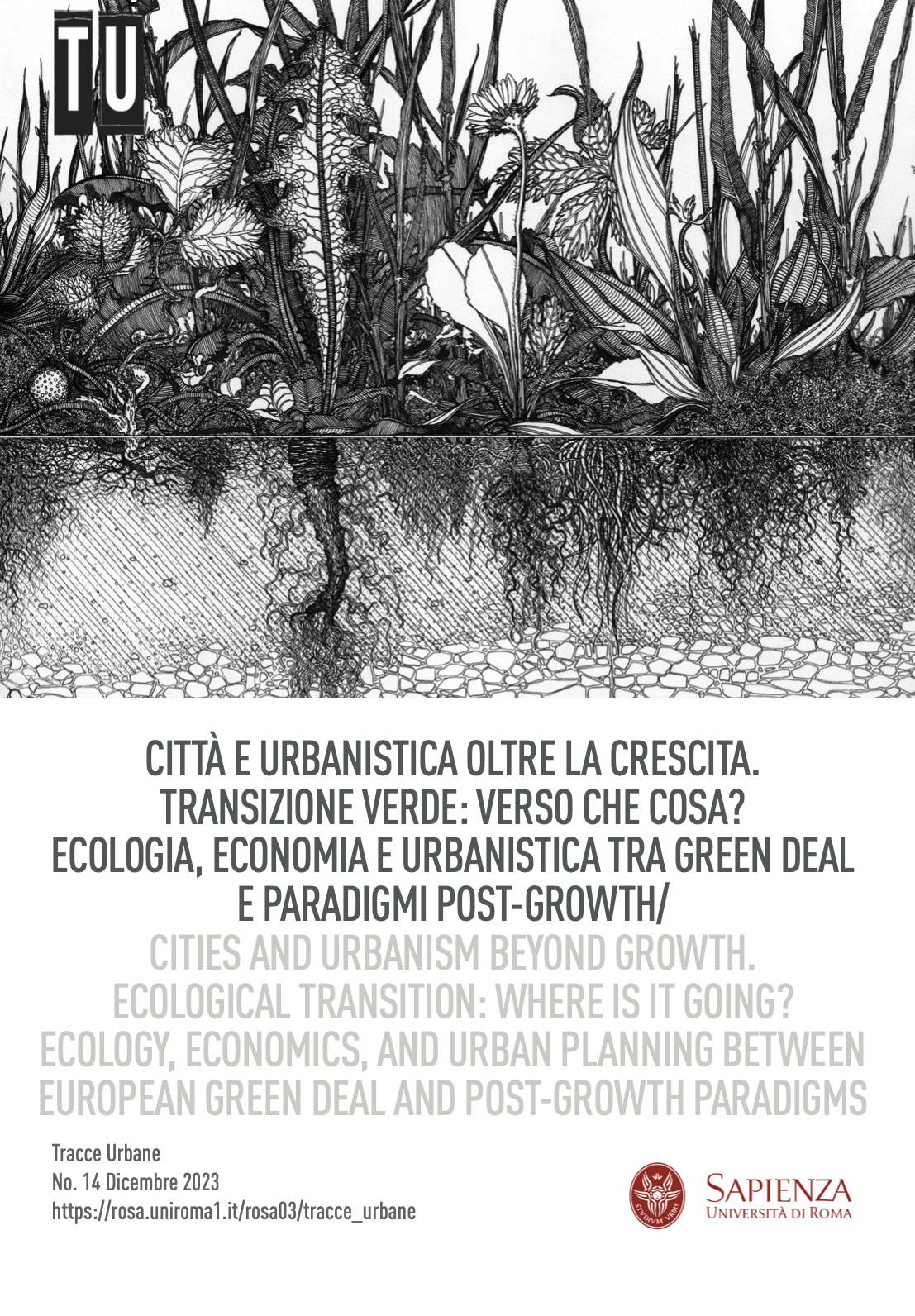Interfaces. Urban design education facing green transition, demographic shift, and environmental crisis
DOI:
https://doi.org/10.13133/2532-6562/18553Keywords:
Urban Design Education, Ecological Transition, Spatial MarginalityAbstract
The post-crisis measures are perceived and anticipated as significant opportunities for the recovery and revitalization of cities and regions. Such opportunities for change mobilize spatial design efforts, even if their actual effects in regions that experience complex demographic and economic challenges remain open for debate. With our contribution, based on three-year design studio at Politecnico di Torino, we would like to reflect on how education in architectural schools addresses notions of marginality, places that are out of focus, and whether exploring ecological transitions in education may provide more conscious practitioners for the future. In the pedagogical process, ordinary villages intersect the interests of an international academic community; those same villages exemplify transition in context – questioning conventional agriculture and old industrialization processes; and through the experience international students are exposed to practices that broaden critical thinking.
References
Angelo H. (2021). How green became good. Urbanized nature and the making of cities and citizens. Chicago: University of Chicago Press.
De Graaf R. (2023). Architect, verb. The new language of building. London-New York: Verso.
Rodríguez-Pose A. (2018). «The revenge of the places that don’t matter (and what to do about it)». Cambridge journal of regions, economy and society, 11(1): 189-209. DOI: 10.1093/cjres/rsx024
Ghosn R., Jazairy E.H. (2023). Climate Inheritance. Barcelona-New York: Actar.
Till J. (2023). «Architecture Criticism against the Climate Clock». The Architectural Review, April 202: 6-10.
Till J. (2014). «Scarcity and Agency». Journal of Architectural Education, 68(1): 9-11. DOI: 10.1080/10464883.2014.864894
Downloads
Published
How to Cite
Issue
Section
License
Copyright (c) 2024 Francesca Frassoldati, Nadia Caruso

This work is licensed under a Creative Commons Attribution 4.0 International License.
NOTA DI COPYRIGHT
Proposta di licenza Creative Commons
1. Proposta per riviste Open Access
Gli autori che pubblicano su questa rivista accettano le seguenti condizioni:
Gli autori mantengono i diritti sulla loro opera e cedono alla rivista il diritto di prima pubblicazione dell'opera, contemporaneamente licenziata sotto una Licenza Creative Commons - Attribuzione che permette ad altri di condividere l'opera indicando la paternità intellettuale e la prima pubblicazione su questa rivista.
Gli autori possono aderire ad altri accordi di licenza non esclusiva per la distribuzione della versione dell'opera pubblicata (es. depositarla in un archivio istituzionale o pubblicarla in una monografia), a patto di indicare che la prima pubblicazione è avvenuta su questa rivista.
Gli autori possono diffondere la loro opera online (es. in repository istituzionali o nel loro sito web) prima e durante il processo di submission, poiché può portare a scambi produttivi e aumentare le citazioni dell'opera pubblicata (Vedi The Effect of Open Access).


